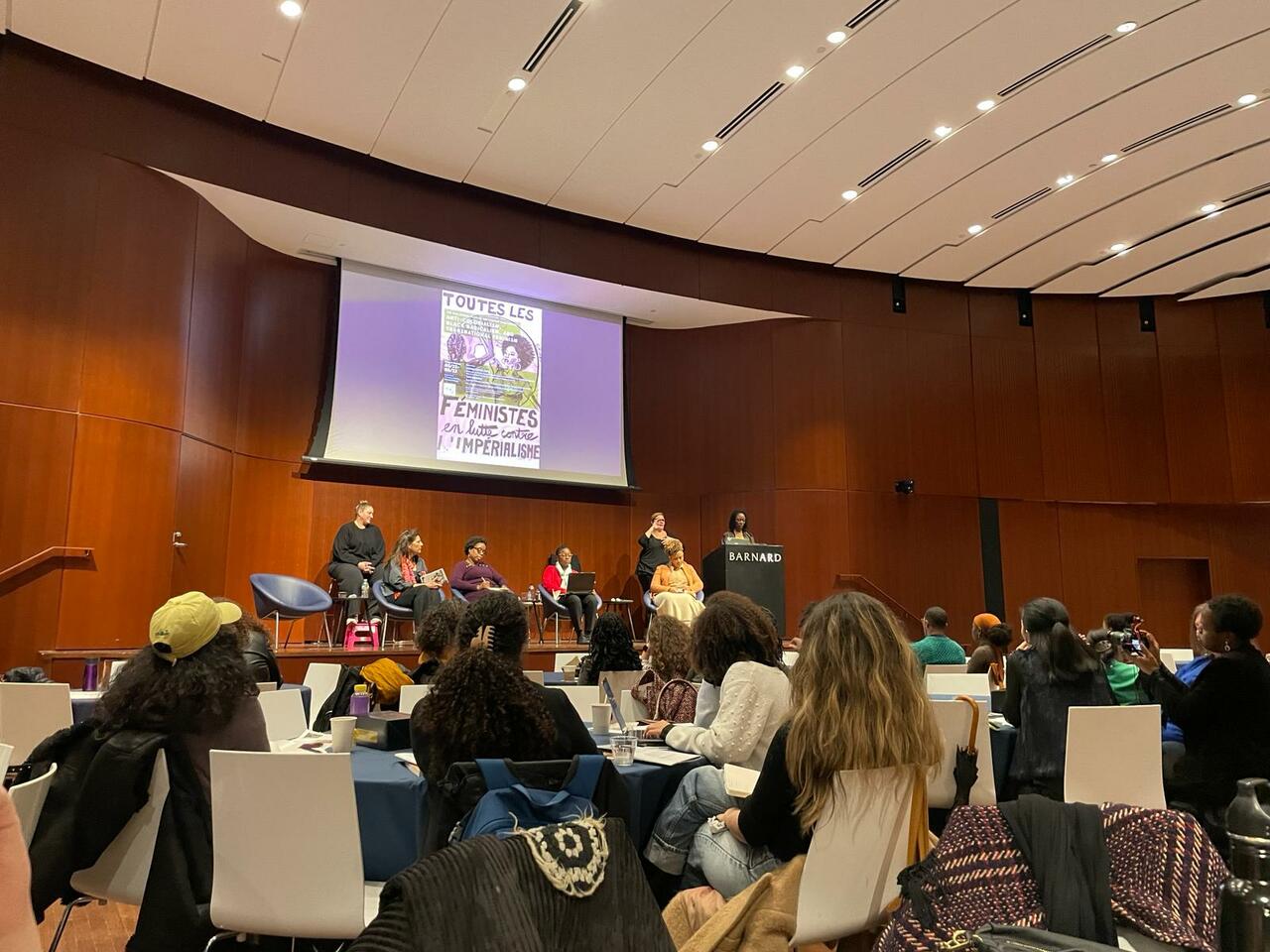Attending the 49th Annual Conference on Anti-Colonialism, Black Radicalism and Transnational Feminism in New York City!

Besides being a wonderful academic experience in which I had the opportunity to meet and learn from scholars within the Anti-Racist and Feminist community, it was also an eye-opening encounter into the vibrant and blossoming community in New York of activists, academics, lawyers, historians and other social workers all working towards the goal of racial and gendered unity. Moreover, the conference emphasised the significant links between Black feminist activism in the United States and other global revolutionary movements for freedom from the bondages of racism and sexism. This was in particular, one of the most interesting aspects of the conference for me, which was explored through research into the Black feminist's movement against the Vietnam War, the global movement for domestic worker's rights most prominently fought for by the late South African activist Myrtle Witbooi and the campaign for reparations for the damage caused by slavery in the Caribbean. What was ultimately found, was that the foundational aspects of each cause remain the same - the fight for freedom, justice and reparations - and that activists across the globe are stronger when aligned together, as underlined by the importance of 'mutual comradeship' which one speaker described as encapsulating a conception of 'love' which is formed on the basis of radical responsibility for one another and the art of principled disagreement. Indeed, I believe this is so important in the age we live in, where we have lost the ability to engage critically with one another in a constructive way. While I believe that we should not give airtime to people whose arguments rest on bigotry or racism, there is a fine balance between that and the ability to have an argument which has the potential to lead to mutual consensus and understanding. This was exemplified in the activist communities represented at the conference, where individuals could have disagreements on principle, but the underlying support never waivers because of the recognition of commonality between the different parties, namely the fight for social justice.
Another interesting part of the conference was the breadth and depth of the subject matter presented. Some speakers spoke about the global capitalist system as a whole, the ramifications of colonialism and the concept of the masculine state and its effects on modern gender relations and positionality of women, while others spoke more specifically about their own affected communities. One speaker conducted research into the fisherwomen of Gamboa, in Bahia (El Salvador). She reflected on her field research which revealed the major threats facing the small coastal, and mainly female, community which makes its living through fishing and living by the sea's mercy. The major threats consist of the expansion of the State to regulate the inner-workings of the community, without recognition paid to their specific lifestyles, as well as the ambitions of wealthy developers to transform the community into a tourist haven. She cited Peter Hudson, who linked the continuation of colonialism through modern 'development' for the purpose of profit. In this way, while the conference covered a broad range of topics, they were fleshed out and interlinked with the intimate details of affected communities, from as small as a fishing village in Bahia, to the activist community of Black women in the 1970s fighting for reproductive rights in the United States. It has the effect of recognising the bigness in scale of the work done, but also the impact it has on the everyday individual. To this point, another thing discussed was the goal of becoming a 'life long activist' in your own unique way which recognises the positionality of the individual held, as well as their strengths and abilities. It convicted me in a sense, and inspired me to do more within my immediate environment for the causes I believe in - be that volunteering at women's shelters or taking the opportunities given to conduct research which makes a difference.
Overall, the conference was a wonderful experience which furthered not only my research interest in Anti-Colonialism and Black feminism but additionally inspired a commitment to the social justice causes that I care about. Whilst in New York, I also visited the MET Museum, where I saw the 'Harlem Renaissance and Transatlantic Modernism' exhibit, which focused on the role Black artists have played in modern life. Many thanks to the Laidlaw Foundation for sponsoring this trip, it was an experience to remember and I feel very lucky to have been able to go.




Please sign in
If you are a registered user on Laidlaw Scholars Network, please sign in
Love this! It's great to see the conversations of intersectionality taking centre stage. Really enjoyed your summary and reflections. I lived in Harlem and the history of the Harlem Renaissance and the civil rights movement can be felt and observed even just walking past the stores, stands, and cultural sites on the streets! Did you get a chance to catch up with any Scholars in the area, by chance?